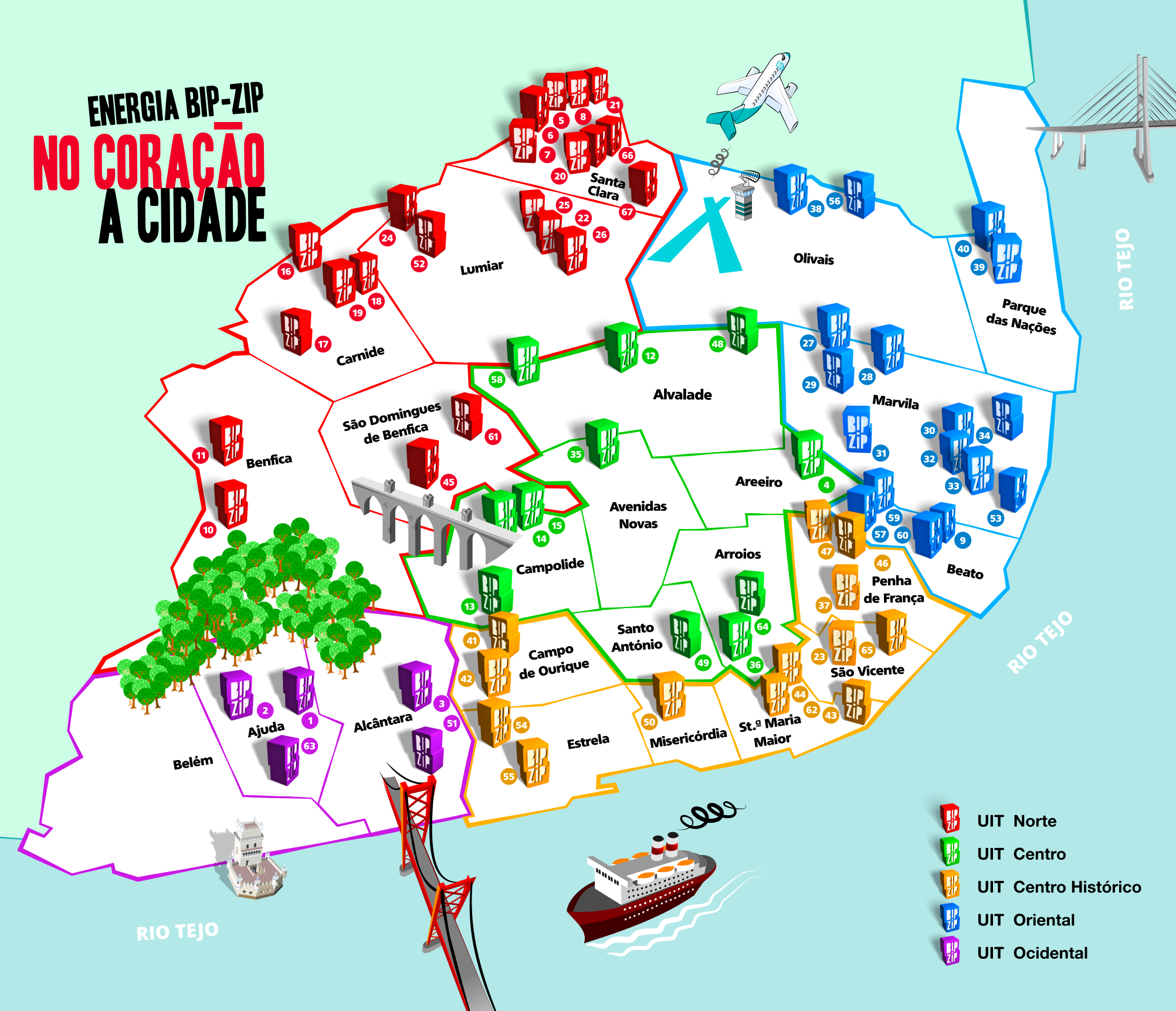
This article examines Lisbon’s urban development through the lens of innovation, highlighting the role of urban experimentation in fostering positive change. It delves into the city’s strategic approach to addressing socio-economic and spatial challenges, particularly focusing on the BIP/ZIP program as a successful model of urban experimentation. Through an analysis of this initiative and related case studies, we at C-NAPSE identify key policy recommendations for the Lisbon CIty Council for leveraging urban spaces as dynamic environments for innovation and community empowerment in Lisbon.
Lisbon, a city steeped in history yet embracing modernity, has increasingly positioned itself as a hub for innovation in Europe and beyond. This drive is evident not only in its blossoming tech sector and smart city initiatives but also in its approach to urban development. Recognizing that innovation extends beyond technological advancements, Lisbon’s City Council and its dedicated entrepreneurs have fostered an environment where social, economic, and spatial challenges are addressed through creative and collaborative methodologies. The city’s urban fabric with several pockets of socio-economic disparity, presents both challenges and opportunities for urban experimentation. The Lisbon City Council and local stakeholders explore novel approaches that move beyond traditional top-down planning, embracing participatory models and importantly, community-led initiatives. The City Council participates in Euro Cities forums to exchange ideas and collaborate with other European cities as well as embarking upon projects like the Unicorn Factory Lisboa which has earned Lisbon the *2023 European Capital of Innovation* award from the European Union.
One prominent case study of Lisbon’s commitment to urban experimentation is the BIP/ZIP (Neighborhoods and Priority Intervention Zones) program. Launched in March 2011, BIP/ZIP represents Lisbon’s Local Development Strategy for Priority Intervention areas, employing a co-governance framework to address complex urban issues. The program strategically identified 67 neighborhoods, home to nearly one-third of Lisbon’s population, based on a comprehensive mapping of social, economic, urban, and environmental deprivation indicators.
The innovation dimension of BIP/ZIP lies in its experimental approach to urban development, characterized by:
- Community-led projects: BIP/ZIP empowers local organizations and residents to identify needs and propose solutions, fostering a sense of ownership and beloning. The BIP/ZIP Programme provides funding (up to €50,000 per project) to ignite local initiatives.
- Co-governance: The program establishes a framework involving the Lisbon City Council, local boroughs, and various stakeholders through Neighbourhood Priority Intervention Support Offices (GABIP). This collaborative approach ensures that interventions are context-specific and benefit from a diversity of perspectives.
- Integrated toolboxes: BIP/ZIP utilizes a range of tools, including detailed mapping to understand urban fractures, a dedicated funding program, local GABIP offices for coordination, and a Collaborative Platform for Community-Led Local Development (CLLD) to facilitate knowledge exchange and strategic development.
BIP/ZIP’s impact has truly been significant. Over the period of 2011-2020, the program supported 394 projects with over €15.8 million, engaging 647 entities and impacting an estimated 107,400 residents annually. Outcomes include enhanced cooperation between decision-makers and local stakeholders, increased local participation in municipal responses, greater transparency in public decision-making, and a swell in local partnerships and initiatives.
Some successful urban experimentation projects within BIP/ZIP include The Cozinha Popular da Mouraria. This community kitchen, funded in the first call, provides affordable food, cultural activities, and employment for disadvantaged residents, demonstrating a locally driven solution to social and economic needs. Additionally, the Almirante Reis GABIP task force is managed by the Aga Kahn Foundation in close collaboration with the City of Lisbon to support the neighborhood’s development.
The recognition of BIP/ZIP as a *Best Practice* by the EU URBACT Transfer Network, leading to its transfer and adaptation within several European cities, further accentuates its innovative and scalable possibilities. The transfer cities were made possible through the Com.Unity.Lab Transfer Network in Bari (Italy), Aalborg (Denmark), Sofia (Bulgaria), Ostrava (Czech Republic), Lublin (Poland), The Hague (Netherlands), and Lille Métropole (France).
Lisbon has demonstrated a strong capacity for urban innovation, particularly through its embrace of urban experimentation. The BIP/ZIP program stands as a testament to the power of community-led initiatives, co-creation, and co-governance in addressing complex urban challenges and fostering positive change. By building upon the lessons learned from such successful models, Lisbon can further solidify its position as a leading city in leveraging its urban spaces as dynamic laboratories for innovation, creating a more inclusive, resilient, and vibrant future for all its inhabitants.
“We were quite afraid of being just another player within the gentrification process, so we focused on trying to get involved with the people who were there already. And that is the thing that also structured our identity not as an actor of the gentrification process, but as one trying to keep the networks of the local commerce, of the local shops, of the people who were living there but who were suffering, like all the Portuguese during the pressure of the crisis. In a certain way, we tried to integrate ourselves in the community from the beginning.” – Largo Residências
Related Good Practices and Literature
- Good Practices Transfer Cities
- ReSkilling Cities, Lisbon Pilot City Culture 21
- Lisbon Smart City Roadmap article
- EU Innovation Council – EU Capital of Innovation Winner 2023
- Fab Lab Lisboa
- Bio Lab Lisboa
Contact Information